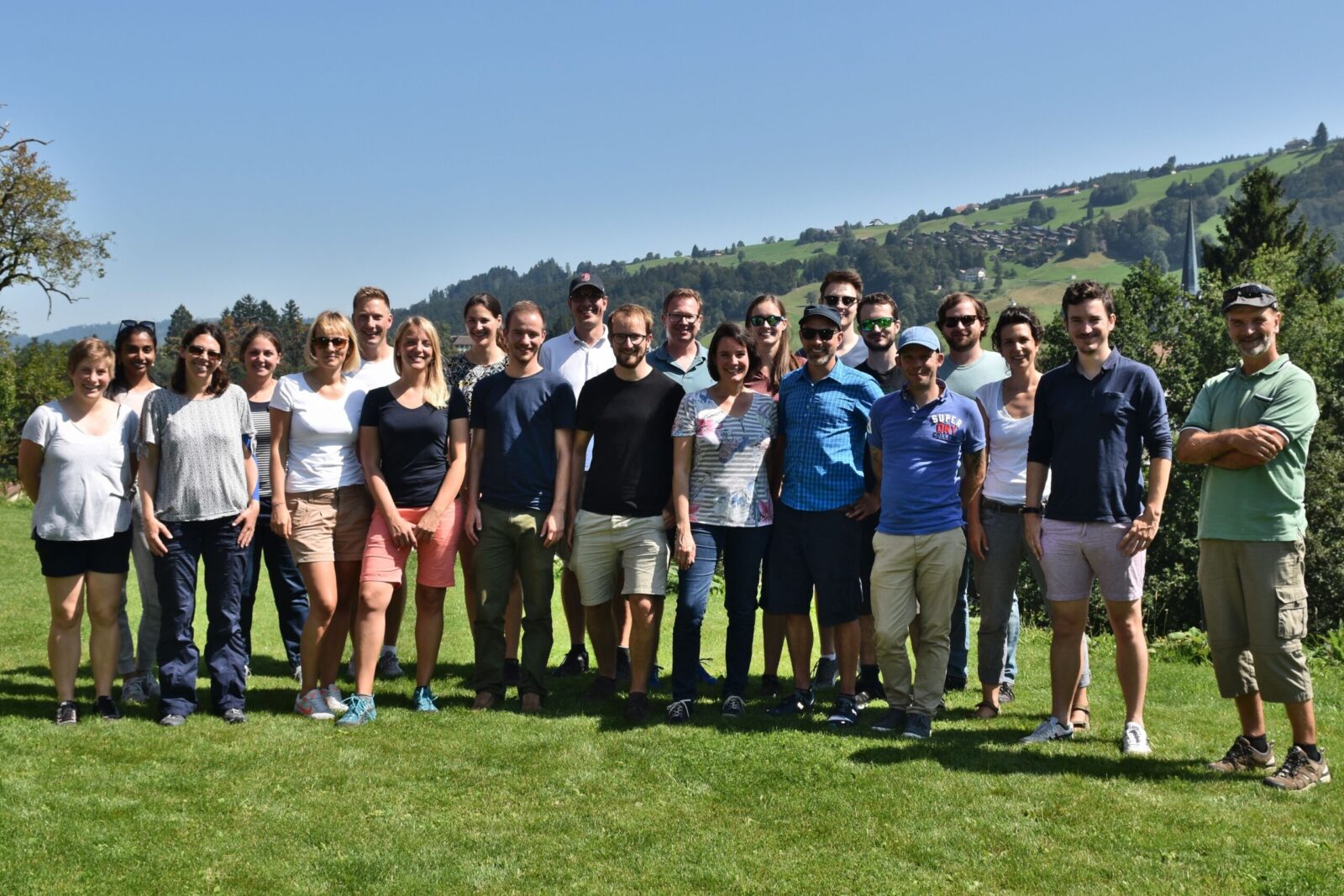Professorship of Molecular Plant Breeding
And about the synergies between breeding and breeding research
With the support of Agroscope, the Swiss centre of excellence for agricultural research, and the fenaco cooperative, the professorship of Molecular Plant Breeding was implemented in 2016. The professorship is headed by Bruno Studer, who had already been assistant professor for Forage Crop Genetics since 2012.
Under the direction of Professor Bruno Studer, around 25 scientists are using state-of-the-art methods to research the fundamentals for efficient crop improvement and are working on transferring the knowledge gained to plant breeding.
Bridge between basic research and plant breeding
The aim of the professorship is to develop and apply molecular genetic methods through inter- and transdisciplinary research in order to better understand complex traits of crop plants and to adapt them to the needs of future agriculture and food systems through breeding approaches.
Close contact with the plant breeders
The group maintains two research satellites at the Agroscope sites in Reckenholz and Wädenswil and carries out research projects with forage crops and apple, in close contact with the respective breeders. The focus is on the characterisation of plant genetic resources and resistance to diseases such as fire blight in apple or bacterial wilt in ryegrass. In addition, the group is doing pioneering work in the production of genome sequences for various crops and the development of new breeding methods. The successful establishment of genomic selection strategies in the wheat and apple breeding programmes of Agroscope represents a significant milestone.

Improved varieties for sustainable agriculture
The research results contribute to more efficient breeding of new varieties for sustainable agriculture. For example, high-resolution measurement of leaf growth under water stress identified genome regions responsible for better drought stress tolerance in forage grasses. In another project in collaboration with the International Center for Tropical Agriculture, resistance to an important leaf disease in common bean was found. Through targeted marker-assisted selection, it is now possible to breed geographically adapted and resistant bean varieties to promote sustainable production of this globally important staple food in Africa and Latin America.